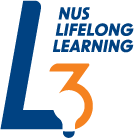Objectives
Learners should be able to
1) Evaluate and explain the runtime complexity of algorithms used in analysing data for precision medicine
2) Describe the architecture of high-performance systems and relate it to the latencies in processing data
3) Evaluate data processing workflows and identify bottlenecks using profiling methods
4) Explain the different models of parallel computing
5)Evaluate and identify suitable applications that utilize parallel computing for accelerating workflows
6) Parallelize a high-throughput workflow and optimize the bottlenecks where necessary
7) Containerize applications and binaries for reproducible computing in a shared HPC environment
Who Should Attend
Career in Healthcare, Research or Diagnostic Lab, Biotech, Pharma, Academic Medicine and Education
Entry Requirements
Applicants must have a Bachelor’s degree and may be required to show relevant work experience. Applicants with other qualifications and experience may be considered on a case by case basis, subject to approval by the school.
Familiarity with Linux environment
Lesson Delivery
a) Lecture : 2 hours
b) Projects/Assignments etc: 2 hours
c) Preparatory work: 6 hours
| ** |
|
Please note that the mode of delivery is subject to change in light of the COVID-19 situation.
Courses marked ‘online’ may have compulsory face-to-face sessions such as laboratory or hands-on components and details should be sought from the schools or departments before learners register for them.
|
Last updated: 16 April 2024


